Stuart Forster travels to Zell am See-Kaprun and meets leading chefs at the inaugural Festival of Alpine Cuisine in Austria’s Salzburgerland.
Disclosure: I was invited to Austria as a guest of the Salzburgerland Tourismus GmbH, which did not review or approve this article. Some of the links below and banners are affiliate links, meaning, at no additional cost to you, I will earn a commission if you click through and make a purchase.
The first Festival of Alpine Cuisine was held from the 14th to the 21st of September 2019 at Zell am See-Kaprun in Salzburgerland, Austria. The 2022 edition, on the 19th of September, will be the third.
Festspiele der Alpinen Küche
The initial version of the festival was held over eight days. It is known as the Festspiele der Alpinen Küche in German.
During the course of the festival, chefs showcase their work and the quality of local ingredients. They serve tasting menus at restaurants in Zell am See-Kaprun.
Salzburgerland is cultivating a reputation for producing and serving high-quality artisanal food and drink. In 2009 the Via Culinaria was established. The Via Culinaria consists of nine themed routes to help guide travellers to restaurants and food and drink producers across the region. Its routes include the Culinary Pathway for Cheese Freaks and the Culinary Pathway for Fish Fans.
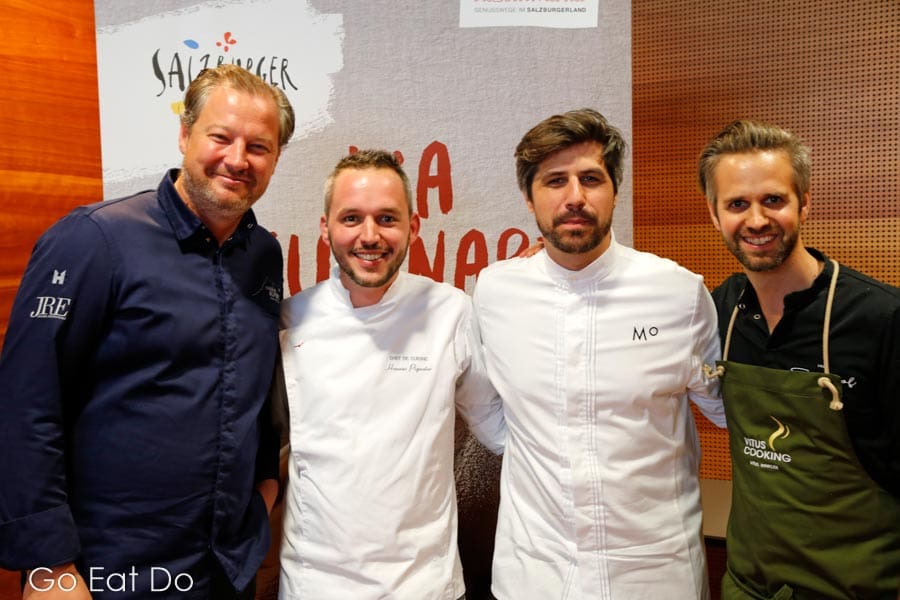
Festival of Alpine Cuisine
One of the festival’s highlights was the Top Chefs on Stage event, held at Zell am See’s Ferry Porsche Congress Center.
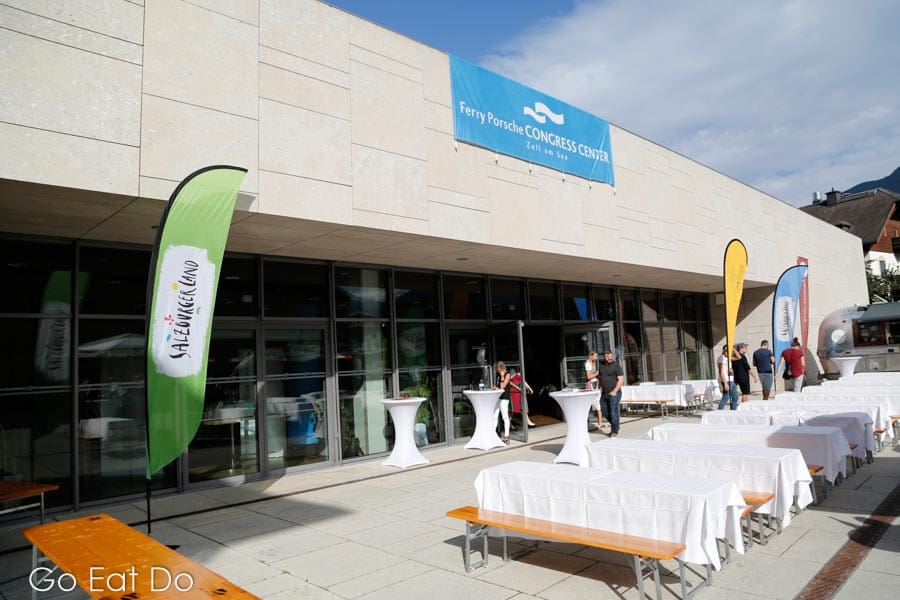
One of the opening speeches was given by Wilfried Haslauer Jr., the Governor of Salzburgerland, which is one of Austria’s nine states.
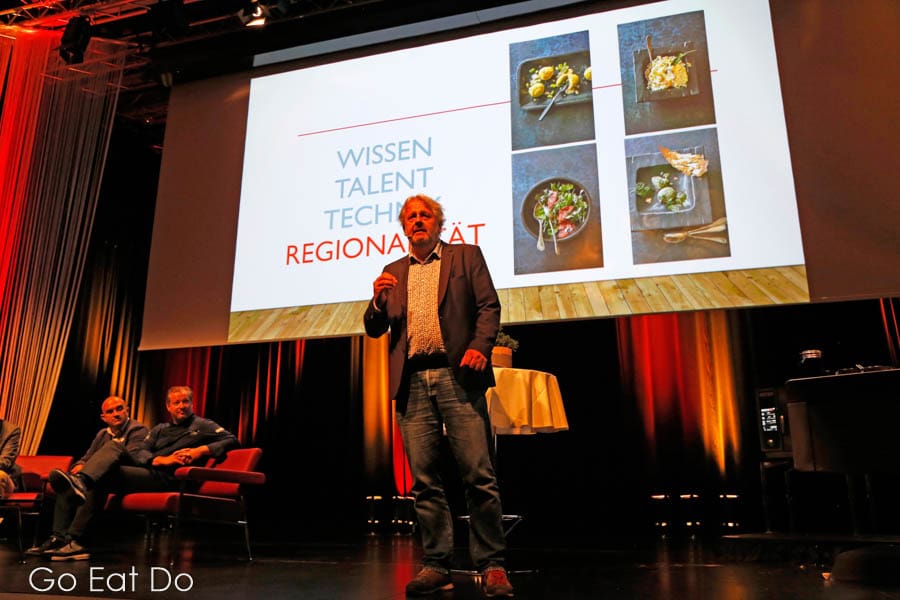
Dominik Flammer — the author of the book Das kulinarische Erbe der Alpen, a book whose title translates to ‘The Culinary Heritage of the Alps’ — was the keynote speaker.

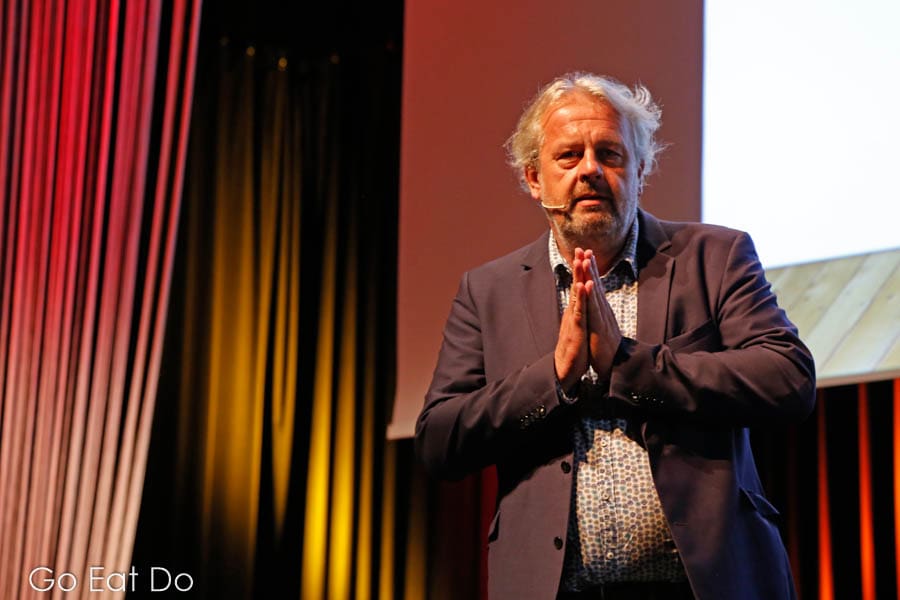
Top chefs on Stage
Leading chefs from the Alpine region were invited to demonstrate how they prepare their signature dishes. Participants included Hubert Wallner of See Restaurant Saag (Saag 11, Techelsberg; tel. +43 4272 4350 1), Hannes Pignater from the Adler Lodge in the South Tyrol region of Italy and Sven Wassmer, whose restaurant Verve by Sven is at the Grand Resort Bad Ragaz in Switzerland.
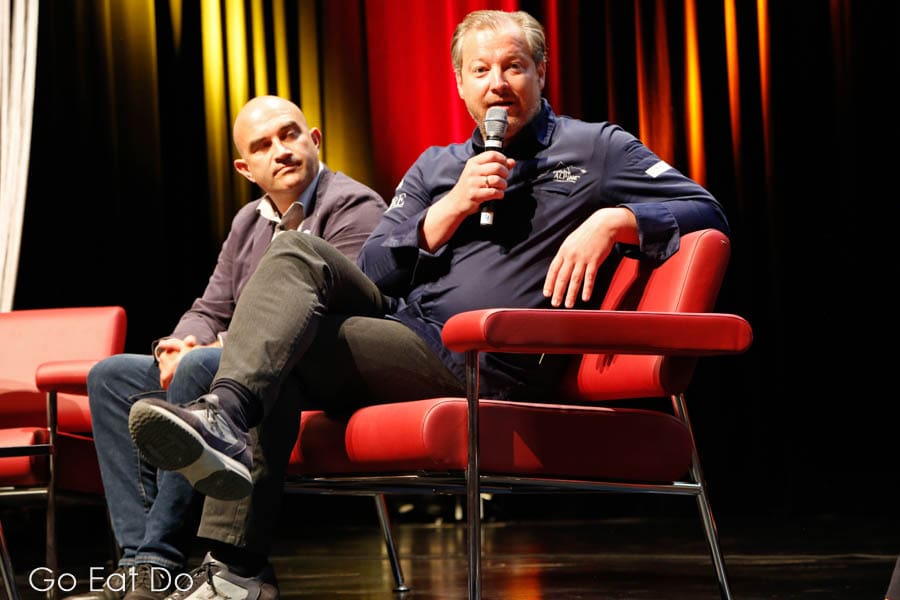
Chef Andreas Döllerer
Andreas Döllerer was the first to take to the stage. His gourmet establishment, Döllerer’s Restaurant (Markt 56, Golling; tel. +43 6244 4220 0), is rated with 18 points from a possible 20 by Gault Millau.
Döllerer is the author of Cuisine Alpine, a book which includes traditional and modern recipes.

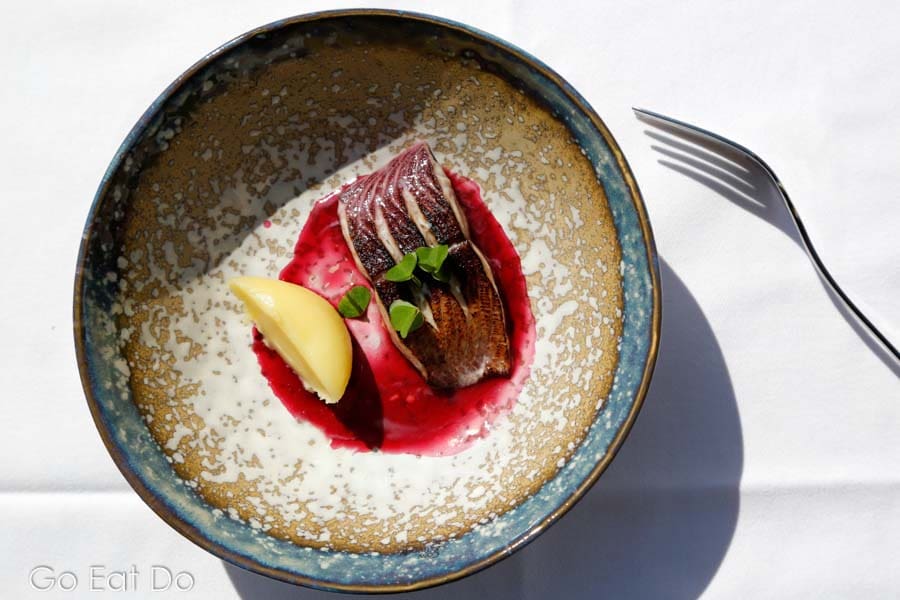
Chef Vitus Winkler
He was followed by Vitus Winkler, a chef who includes foraged ingredients in creative dishes served at Vitus Cooking (Sonnhof Hotel, Kirchweg 2, Sankt Veit im Pongau; tel. +43 6415 4323).
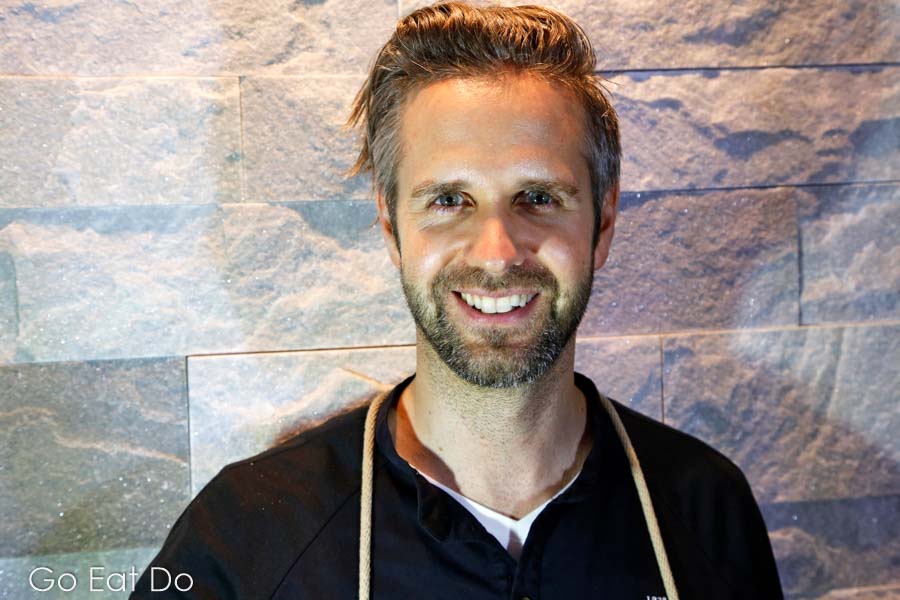
Following his cookery demonstration, Mr Winkler presented prizes in the HOGAST.REGIO-Genusspreis cookery competition, which paired young chefs with regional food producers.
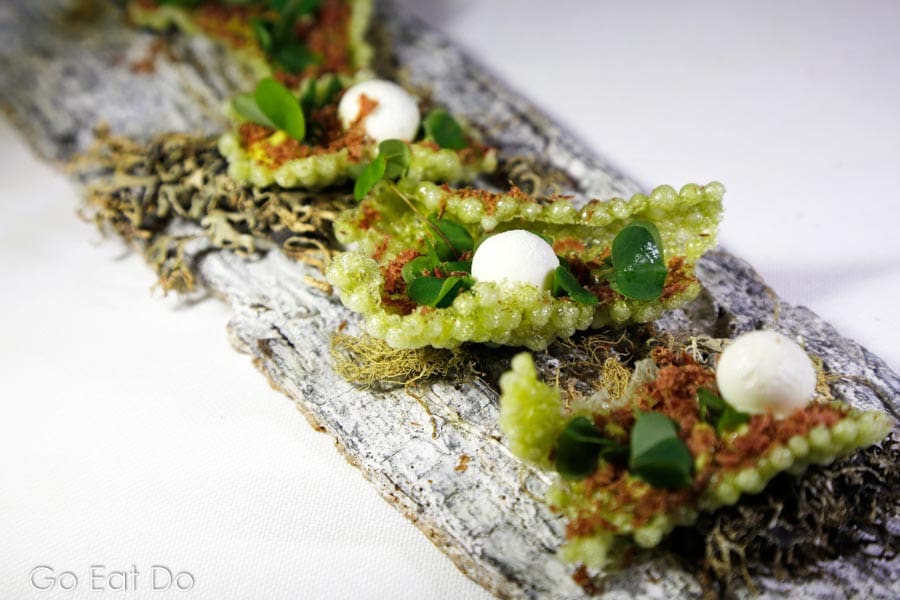
Chefs prepared dishes that visitors to the Festival of Alpine Cuisine to buy. Food producers displayed their products and provided samples in the foyer of the conference centre. Food trucks also parked outside of the Ferry Porsche Congress Center. Meanwhile, workshops provided a forum for attendees to delve into culinary-related themes.
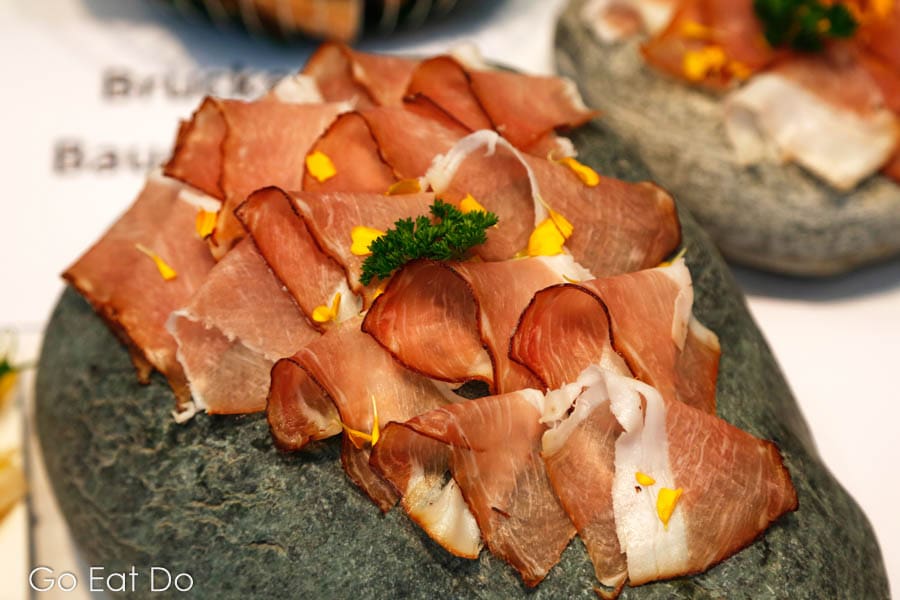
Meeting the festival organiser
“The idea for the Festival of Alpine Cuisine came from me,” said Klaus Buttenhauser, the organiser of the event. As the day drew towards its close we chatted by one of the tables arranged in the foyer of the Ferry Porsche Congress Center.
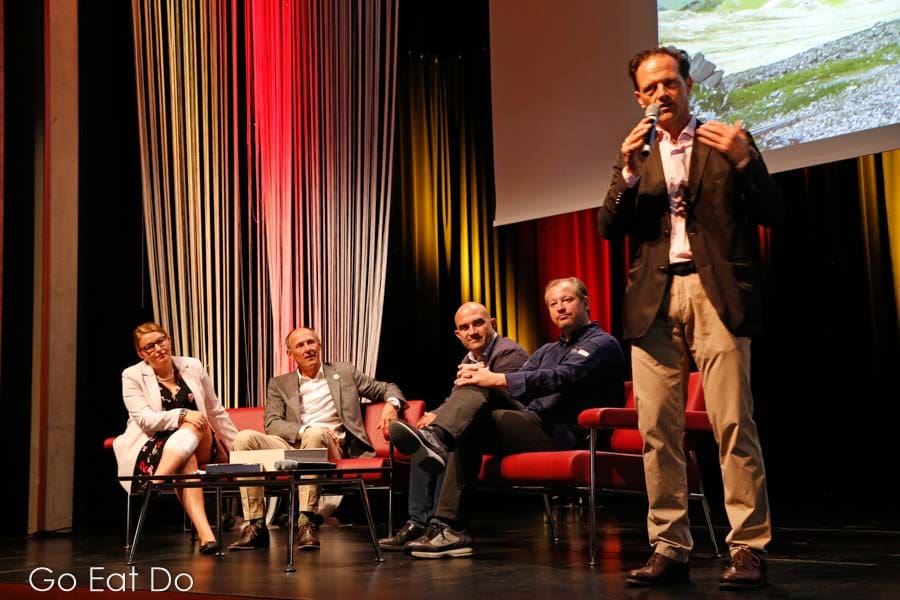
“The idea, actually, is that we give a stage to Alpine cuisine in its modern form, to show that the end product is based on signature, home-grown products; that it draws sophistication from things that are in essence simple. That’s one characteristic of the region’s cuisine and that’s why the Festival of Alpine Cuisine is here,” he explained.
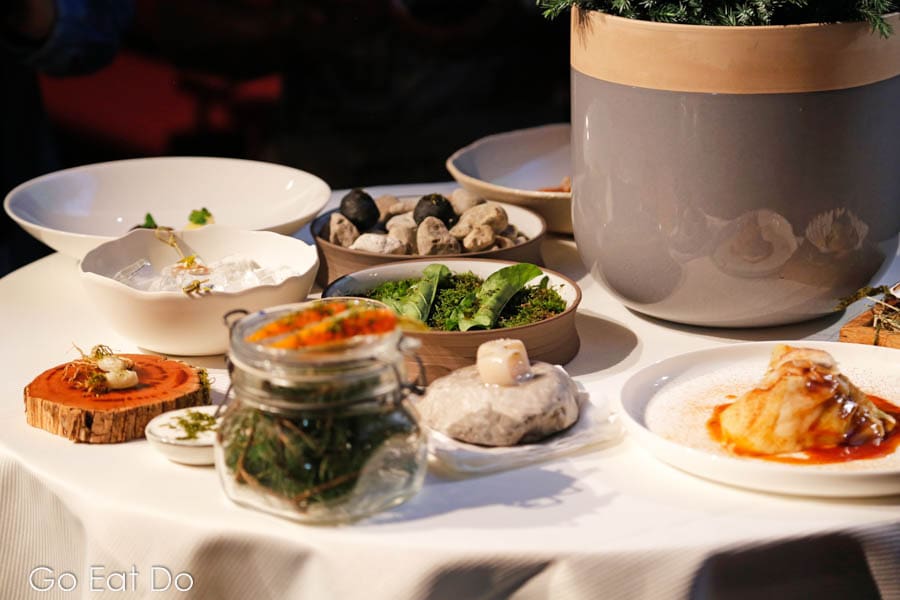
“I find that it’s been well received by the chefs, who are keen to show what they do…It’s been well visited. We’ve had 550 people here today. They could buy dishes cooked by the distinguished chefs who stood and made presentations on the stage along with cuisine from other chefs. Both were of a high standard. I’ve got good reasons to be satisfied with the event,” said Mr Buttenhauser.
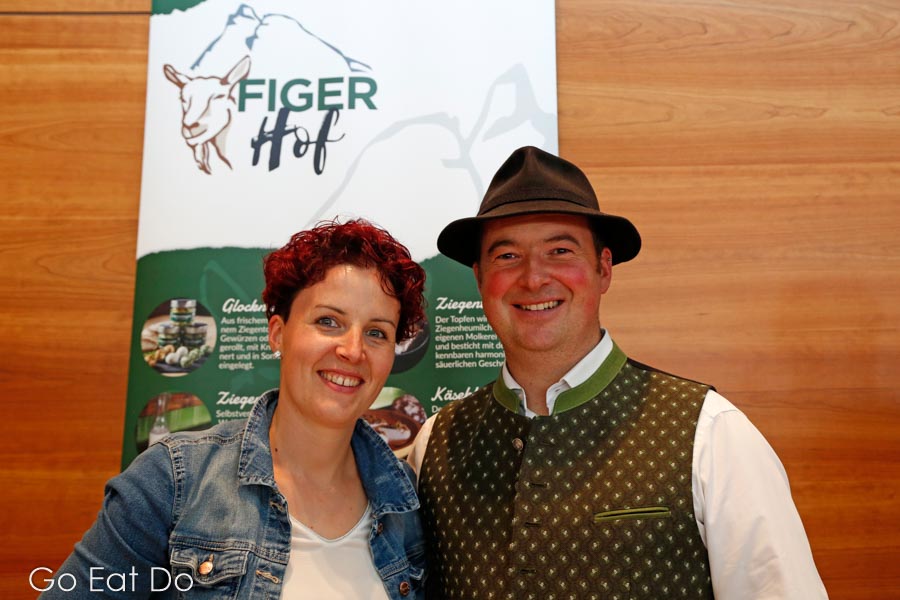
Cuisine in tourism marketing
“The next step has got to be that we utilise the Alpine cuisine more prominently in our tourism marketing. We heard today from the Governor of the Salzburgerland as well as Leo Bauernberger [the executive director of Salzburgerland Tourismus GmbH] that we can employ the image of Alpine cuisine more effectively in promoting the image of the Salzburgerland,” added the festival’s organiser.
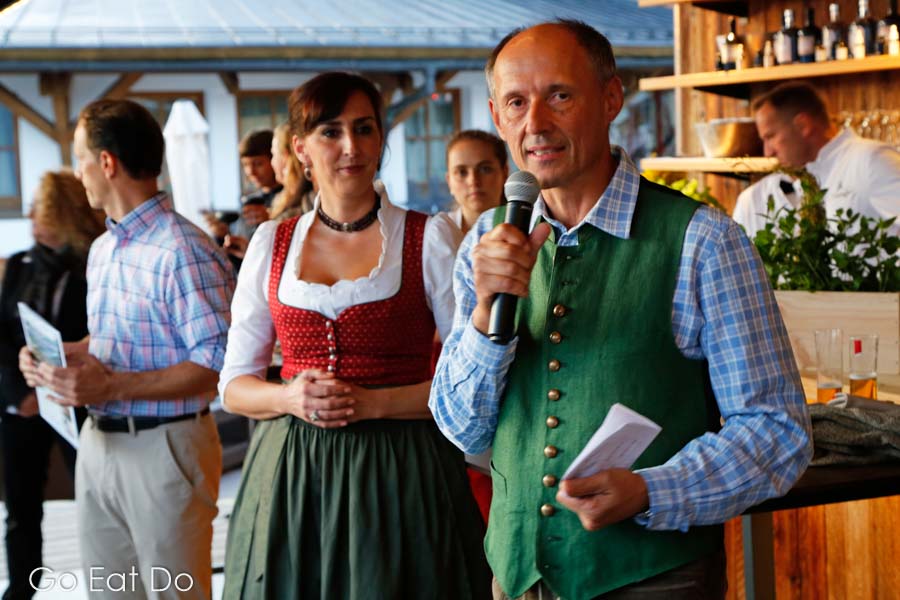
“In culinary matters, Salzburgerland is the best organised and best established in Austria. The Via Culinaria has more than 300 culinary enterprises; nowhere has such a high concentration. When one measures it on the Gault Millau level, Salzburgerland has many distinguished restaurants.
Yet it’s not just about the Alpine region of Austria — that corresponds to the states of Salzburgerland, Tyrol, Vorarlberg, Carinthia and Upper Austria — we can employ the concept and appear together on international markets. We could go out and represent Alpine cuisine rather than Tyrolean or Salzburgian cuisine,” he said.
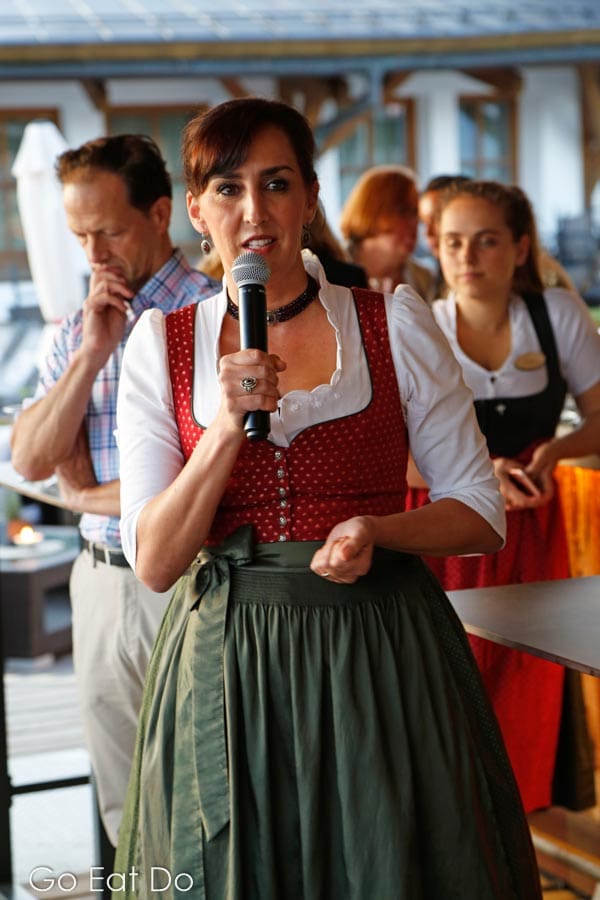
An alternative to Scandinavian cuisine
“The Alpine region hasn’t yet positioned itself so cleverly or so proactively as a culinary destination. Perhaps, thus far, it’s been too fragmented. That was the advantage of Scandinavia; it appeared here as one entity. It wasn’t important if a chef was from Sweden or Denmark — it was Scandinavian cuisine.
There’s an advantage to joining forces and showing how innovative the Alpine region can be in working with the ingredients that count among its highlights,” concluded Mr Buttenhauser.
The proof of whether the reputation of Alpine cuisine evolves to rival or surpass that of Scandinavian cuisine will, of course, be in the eating.
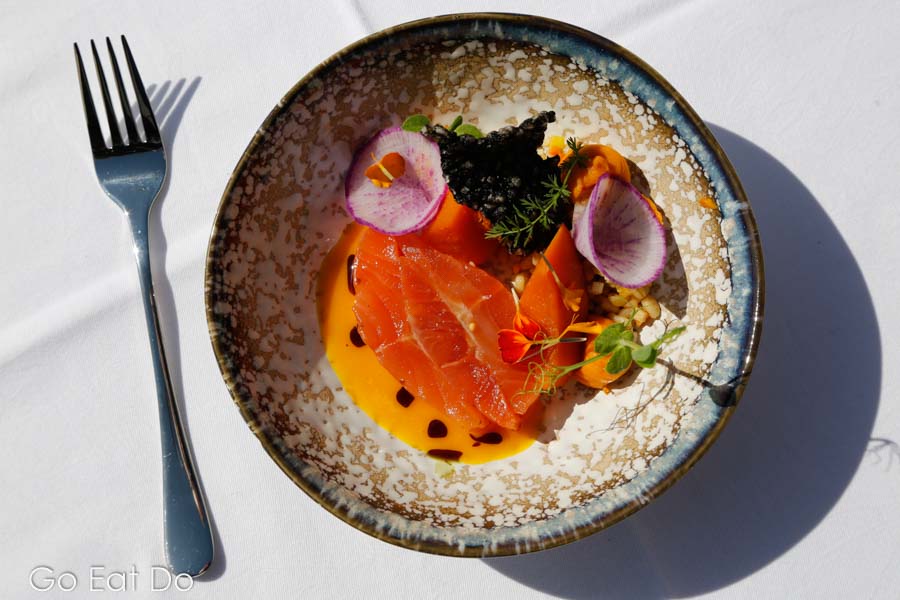
Travel to Salzburgerland, Austria
Considering visiting the next Festival of Alpine Cuisine in Austria’s Salzburgerland? The Google map below shows the location of Zell am See, Austria:
The train journey between Salzburg’s central station and Zell am See also takes approximately 90 minutes.
Flying to Munich Airport and transferring to road or rail is another option for reaching Zell am See. It’s a two-and-a-half-hour drive between the two if the roads are clear. The rail journey between the central stations of Salzburg and Munich takes around one hour and 45 minutes.
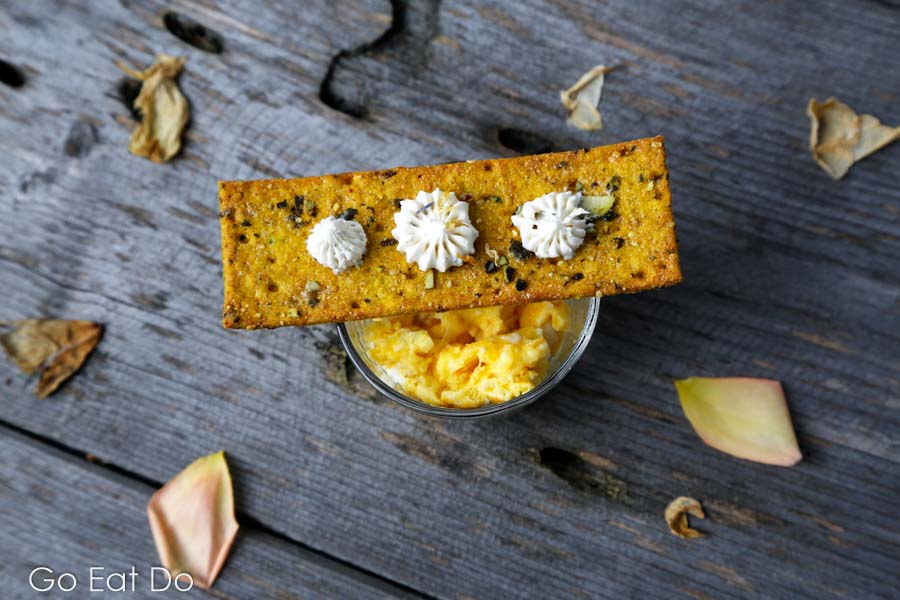
Hotels in Zell am See
Zell am See is a long-established resort town with a broad selection of accommodation.
Enjoy luxury? The 70-room Hotel Salzburgerhof (Auerspergerstrasse 11, 5700 Zell am See; tel. +43 6542 765) has a five-star superior rating. The courtyard gardens and three-storey wellness area count among the reasons to visit.
It’s neighbour, the Hotel Tiroler Hof (Auerspergerstrasse 5, 5700 Zell am See; tel. +43 6542 7720), is a four-star superior property with a traditional Alpine chalet appearance. The 91-room hotel has a sauna, pool and wellness area in its basement and an open hearth in its lobby.
The Grand Hotel Zell am See (Esplanande 4-6, 5700 Zell am See; +43 6542 7880) is also a four-star superior hotel and has 130 guestrooms. It looks onto Lake Zell and has two spa areas.
Search for hotels in Zell and See via Booking.com:
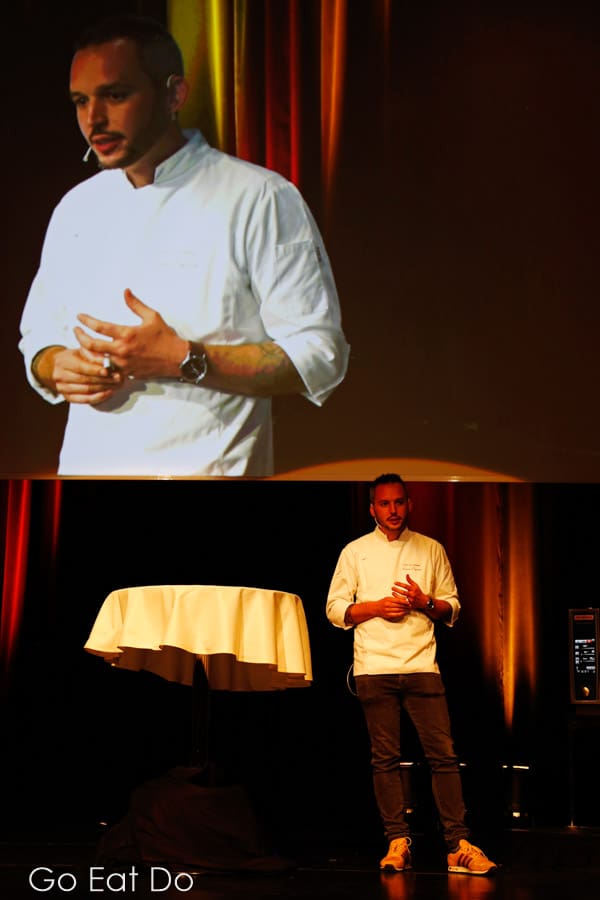
Books about Alpine Cuisine and Austria
Interested in Austria and Alpine Cuisine? Take a look at the following books:
Alpine Cooking: Recipes and Stories from Europe’s Grand Mountaintops by Meredith Erickson:

High Alpine Cuisine: Inspired Dishes from Extraordinary Mountain Escapes Around the World by Marla Meridith:


Cicerone Guides’ Walking in Austria: 101 routes – day walks, multi-day treks and classic hut-to-hut tours:

Further information
See the Festival of Alpine Cuisine website for information about participating chefs and events planned for the third edition on 19 September 2022 at Zell am See – Kaprun in Salzburgerland, Austria.
Looking for places to eat when you visit Austria? That website includes a listing of ten of the top restaurants in Austria plus information about some of the Alpine region’s leading food producers.
For insights into things to do and see in and around the Festival of Alpine Cuisine’s host town, see the Zell am See-Kaprun and Salzburgerland websites.
Photos illustrating this article are by Why Eye Photography. Based in North East England, Why Eye Photography specialises in travel and food photography.
Enjoy this article? Take a look at my post about the traditional Christmas markets in Salzburg, Austria to get an idea of things to do and see in the city as Christmas approaches.
If you enjoyed this post why not sign up for the free Go Eat Do newsletter? It’s a hassle-free way of getting links to posts on a monthly basis.
‘Like’ the Go Eat Do Facebook page to see more photos and content.
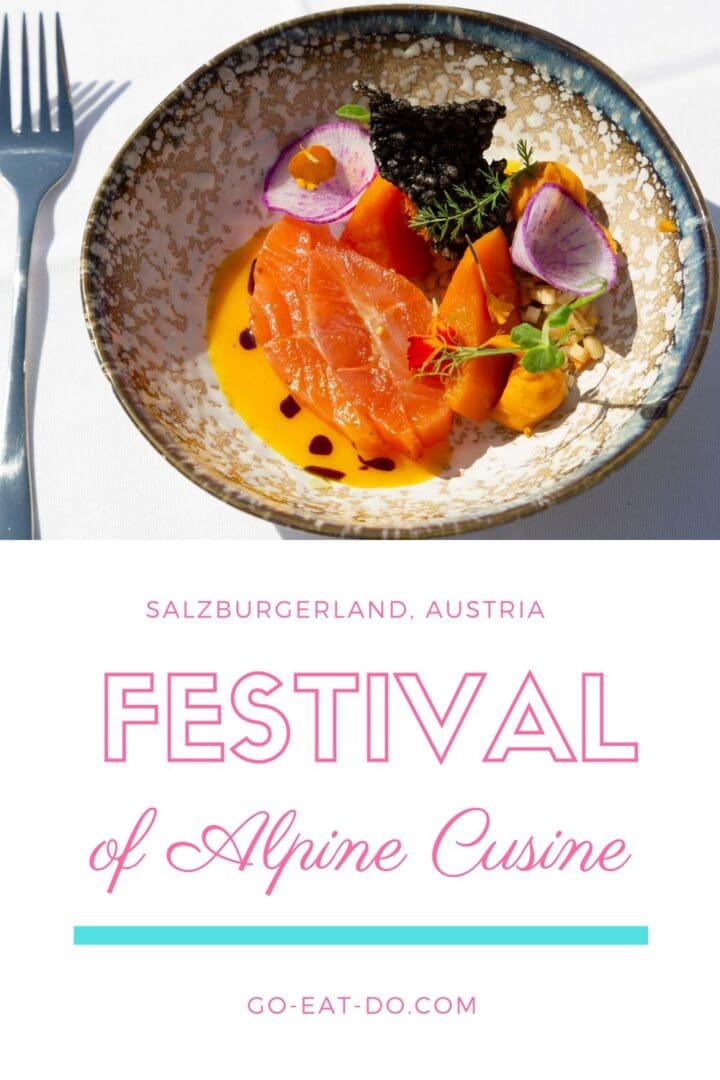
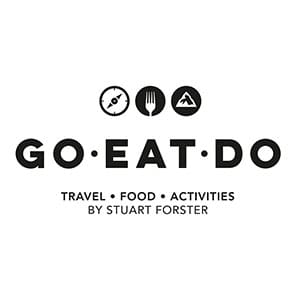



Nelly
October 17, 2019 at 08:12All the food here looks outstanding. I’ll be adding this festival onto my list of future projects.
Stuart Forster
October 17, 2019 at 08:43Quality food by outstanding chefs in a beautiful landscape; it has a lot going for it!